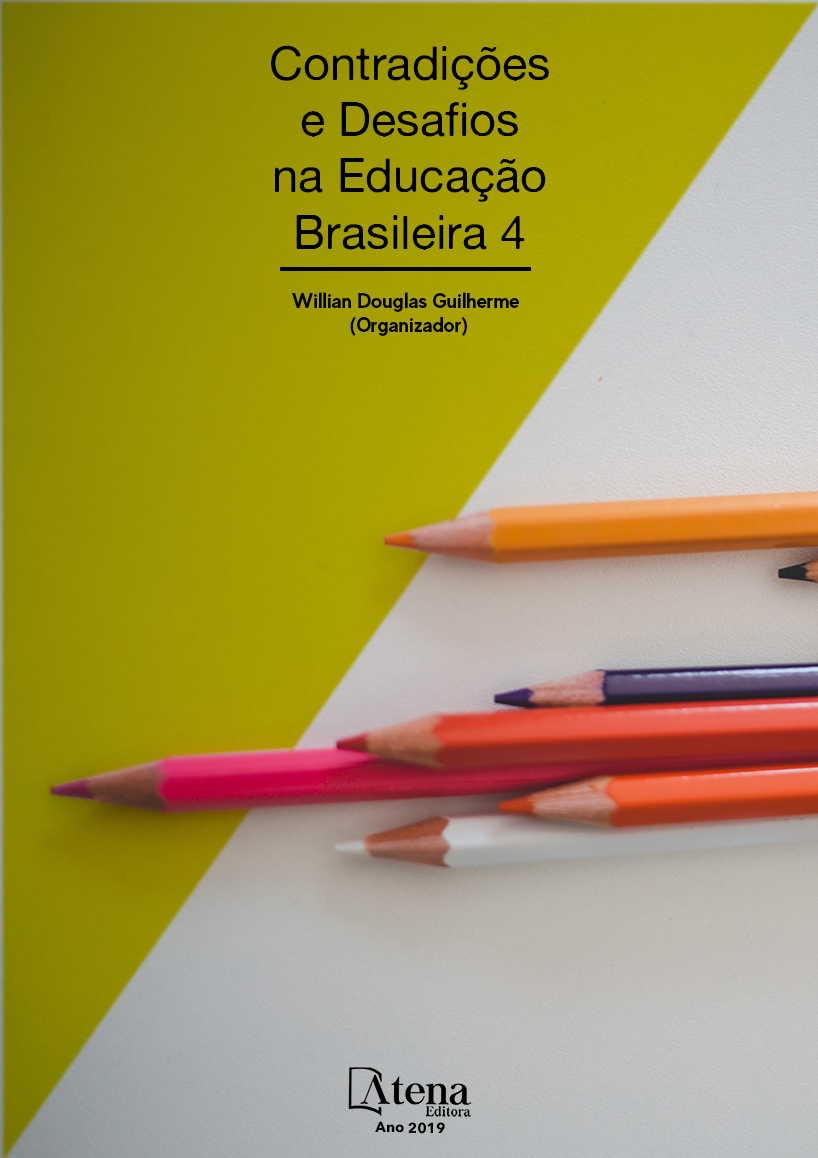
A POLÍTICA DE FORMAÇÃO DE PROFESSORES NO INSTITUTO FEDERAL DO PARANÁ: ENTRE A LÓGICA DO MERCADO E DO MUNDO DO TRABALHO
O estudo apresenta pesquisa sobre
a política de formação de professores no IFPR
entre os anos de 2012 a 2014, que evidencia
algumas contradições da qualificação docente
em um espaço técnico-profissionalizante. A
instituição promoveu atividades e encontros
que resultaram na política de qualificação ou
capacitação da força de trabalho docente.
É uma investigação orientada pelo método
marxista de exposição teórica e de averiguação
de documentos, a saber: Relatório de Gestão
(IFPR, 2014), Decreto nº 5.707/06, Lei nº
11.091/05, Decreto nº 5.825/06 e Lei nº
12.772/12. Os procedimentos metodológicos
foram demarcados pela abordagem dialética
das categorias mercado e mundo do trabalho,
tendo interlocução com diversos autores:
Adorno, Arendt, Arroyo, Cury, Frigotto, Gramsci,
Horkheimer, Kosik, Kuenzer, Marx, Mészáros
e Saviani. Alguns dados foram constatados: a
política de capacitação instruída pela PROENS
foi articulada, gradativamente, pelo Programa
de Desenvolvimento dos Servidores Técnico-
Administrativos e Docentes do IFPR, em
acordo com a Resolução nº 44/13-Conselho
Superior/IFPR; em 2014, 498 servidores foram
capacitados; pelo Edital nº 023/14-IFPR ofertouse
76 vagas para os técnico-administrativos em
educação e 79 vagas para os docentes, para
afastamento de pós-graduação. Não foi possível
detectar a quantidade de docentes licenciados e
não-licenciados, nem tampouco o conteúdo dos
documentos que indique claramente a visão, os
valores e as finalidades do trabalho docente no
IFPR. A pesquisa está alicerçada na proposta
de formação docente integral em contraponto
com o treinamento docente. Defende-se a
conveniência da formação do ethos docente,
haja vista que trabalhar as atitudes seja tão
importante quanto a apreensão cognitiva.
A POLÍTICA DE FORMAÇÃO DE PROFESSORES NO INSTITUTO FEDERAL DO PARANÁ: ENTRE A LÓGICA DO MERCADO E DO MUNDO DO TRABALHO
-
DOI: 10.22533/at.ed.76719010620
-
Palavras-chave: Política; Formação; Professores; IFPR.
-
Keywords: Policy; Training; Teachers; IFPR.
-
Abstract:
This study presents a research
about the teacher training policy in the IFPR
between the years 2012 to 2014, that shows
some contradictions of the teacher qualification
in a technical-vocational space. The institution
promoted activities and meetings that resulted
in the qualification policy or teaching workforce
training. It is an investigation guided by the
Marxist method of theoretical exposition and
document inquiry, namely: Management Report
(IFPR, 2014), Decree No. 5,707 / 06, Law
11,091 / 05, Decree No. 5,825 / 06 and Law
12,772 / 12. The methodological procedures
were demarcated by the dialectical approach of
the market and labor market categories, that has an interlocution with several authors:
Adorno, Arendt, Arroyo, Cury, Frigotto, Gramsci, Horkheimer, Kosik, Kuenzer, Marx,
Mészáros and Saviani. Some information were verified: the training policy instructed by
PROENS was gradually articulated by the Program of Development of the Technical-
Administrative Servants and Teachers of the IFPR, in agreement with the Resolution
nº 44/13- Superior Council / IFPR; in 2014, 498 servers were trained; by the Edictal
nº 023/14-IFPR, 76 vacancies were offered to the technical-administrative personnel
in education and 79 vacancies for the professors for post-graduation leave. It was not
possible to detect the number of licensed and unlicensed teachers, nor the content
of the documents clearly indicating the vision, values and purposes of the teaching
work in the IFPR. This research is based on the proposal of integral teacher training
as a counterpoint to partial teacher training. It is advocated the convenience of the
teacher ethos training, since acquire attitudes is as important as cognitive apprehension.
-
Número de páginas: 15
- Joelson Juk


